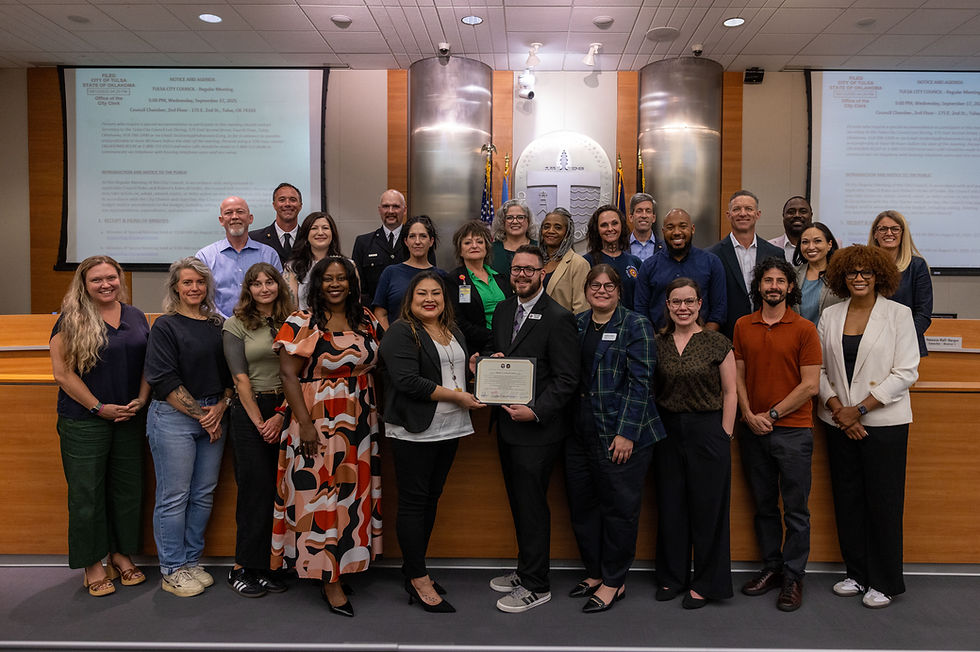Councilors Attend Mental Health Crisis Response Tour
- May 13, 2025
- 2 min read

May is Mental Health Awareness Month, and the Tulsa City Council recently went on a Mental Health Crisis Response Tour that featured Healthy Minds Policy Initiative among other stakeholders.
Previously, the Council heard from Zack Stoycoff, the Executive Director of Health Minds Policy Initiative during the Urban & Economic Development Committee meeting on January 15.
Healthy Minds Policy Initiative’s mission is to help policymakers and leaders advance data-driven strategies to overcome our state’s substance-use challenges and meet the mental health needs of all Oklahomans.

Here are a few quick stats about Oklahomans and mental health:
1 in 4 adults has a mental illness
1 in 5 adults had a substance use disorder in the past year
More than 53.5% of adults with a mental illness receive no treatment
74% of those with substance use disorder receive no treatment
Suicide is the 10th leading cause of death in Oklahoma
What’s a mental health crisis? When an individual’s emotions, thoughts, or behavior make them a danger to themselves or others, or significantly disrupts their ability to function.
There are three types of services to support someone enduring a mental health crisis.
Someone to call.
Someone to respond.
Somewhere to go.

Someone to call: Since February, mental health clinicians from Family & Children Services’ Community Outreach Psychiatric Emergency Services (COPES) program have been embedded in the 911 center 24/7. In March, they diverted more than 560 calls for Police, Fire, and EMSA. In 2022, 988, a mental health and suicide line, was launched. Within two years, 988 received roughly 300 calls per month.
Someone to respond: COPES mobile crisis teams responded to 4,602 calls in 2024 and have seen a 200% increase in responses since 2022. In addition to COPES, new alternative response or co-responder teams have launched in Tulsa including:
• CRT (Community Response Team): Police, Fire, and Mental Health response
• IRT (Integrated Response Team): Police and Mental Health response
• ART-1 and ART-2 (Alternative Response Teams): Fire and Mental Health response
In late 2024, the Tulsa City Council approved funding to expand the Alternative Response Team 2 (ART-2) program that focuses on mental health and homelessness outreach in Downtown Tulsa.

Somewhere to go: In 2020, the capacity at Family & Children Services Crisis Care Center expanded by 30% and the facility added a dedicated police entrance. In 2024, the Tulsa Sobering Center was integrated into services offered at the Tulsa Urgent Recovery Center through GRAND Mental Health and offers comprehensive care for substance abuse. By 2026, the opening of the new Oklahoma Psychiatric Care Center in downtown Tulsa will add an additional crisis care facility.
For more on how the City of Tulsa is addressing mental health, visit: https://www.cityoftulsa.org/mhss



